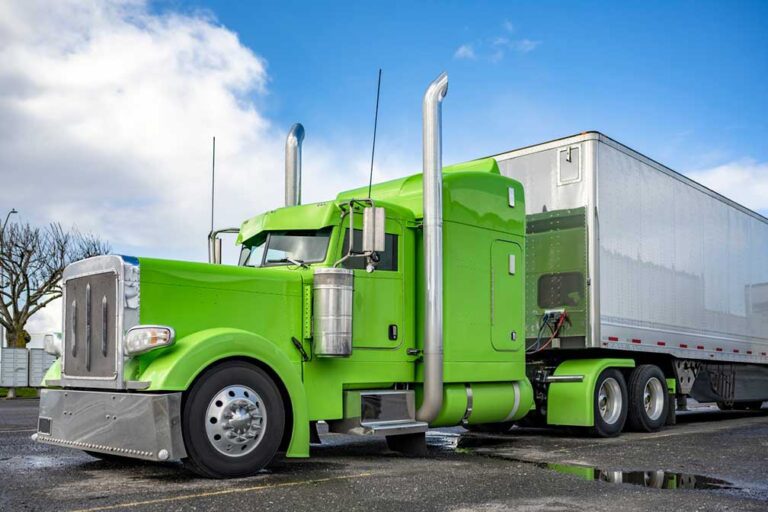Hunting for bargains is a common response to inflation. When everything costs more, people naturally shop for the best available deal.
Unfortunately, that “best available deal” you just found could be stolen merchandise. And sadly, sometimes that merchandise is stolen during transit while under the care of truck drivers.
CargoNet, a national data-sharing system that combats cargo theft by offering theft prevention and recovery solutions, reports that cargo thefts during the holiday season (Dec. 23 through Jan. 2) have increased in each of the past five years. That number is expected to rise once again for the 2023-24 season.
However, cargo theft is not just a seasonal issue; it can happen any time of the year.
California clearly leads the cargo-theft field, according to CargoNet, with Texas and Georgia rounding out the top three. Appliances, furniture and cleaning supplies are noted as the most targeted commodities, but electronics, energy drinks, liquor, footwear and other products are sought by thieves as well.
While some crimes occur because of opportunity, many are carefully planned. Perpetrators want to steal products that are popular with consumers — and that can easily be resold. Often, the final consumer has no idea that the product they just bought is stolen; most folks simply assume the retail establishment selling the merchandise obtained it honestly.
Some thefts are as simple as stealing a parked tractor-trailer while the driver is away, or picking up a dropped trailer. Other strategies involve deception, such as pretending to be a particular carrier that is scheduled to pick up a load. The phony driver pulls up and has the freight loaded, signing for it with a fictitious name, and then vanishes with the cargo.
Even the most honest of drivers can become unwilling participants in theft schemes by unwittingly providing information to thieves. A person pretending to be a shipper representative, security person or lumper can ask for pickup numbers and other information that is then used to steal the load, so always make sure you know exactly who you’re talking to.
Other common driver actions that can help thieves include dropping loaded trailers when bobtailing home, announcing their cargo and destination over C.B. radios, or leaving their rig unattended at truck stops.
Truckstop has reported a rise in reported cargo thefts, and notes that thefts are often unreported. Some of Truckstop’s blog posts detail common theft-related activities, such as the use of master keys to gain entry to parked equipment, altering trailer markings, changing license plates and even choosing times close to holidays, when trucks are likely to be unattended for longer periods.
As a truck driver, you can reduce your risk of adding to your load to the long list of cargo theft statistics with just a few steps.
The first is to remember that no cargo is worth your life or safety. If you’re approached by thieves who threaten you, especially if they are armed, do not resist. Just try to memorize as many details as you can to provide to law enforcement later.
Phone cameras can be used to help you remember all the details. It’s rare for a driver to remember the license plate number of a trailer they picked up to transport, but a quickly snapped photo “remembers” it for you. Taking photos of paperwork can provide shipment details that may help in the event of theft. In addition, taking photos of anything suspicious around the pickup facility or truck stop could provide valuable clues. Pictures can preserve details you may not notice — and they can be erased after the shipment is delivered if you need to clear out space on your phone.
There’s an old World War II adage: “Loose lips sink ships.” This applies to the cargo you’re transporting, too. (Perhaps for trucking the term should be: “Conversation leads to confiscation.”)
Thieves don’t often announce themselves as having bad intentions. Instead, they may appear to be friendly, asking questions that can seem like small talk. Watch what you say to that talkative stranger at the diesel fuel island or inside the c-store deli. Questions about where you’re headed, where you’ve just been or what you’re carrying may seem innocent, but criminals know where the shippers they target are located. They can often determine what’s in your trailer without asking you directly.
Never answer questions about your route or your cargo. Even if you’re talking to another driver on the C.B., thieves can be listening. Some drivers routinely claim they’re hauling scrap paper or another low-value cargo, but it’s best not to answer at all.
Every driver knows that trailer door seals and locks can’t prevent determined criminals — but they can deter amateur thieves and help prevent thefts of opportunity. Use them. If you drop the trailer, choose the safest possible spot and use a kingpin lock as well. In truth, many carriers have policies against dropping a loaded trailer. There’s a reason for this policy.
When possible, arrive at the pickup location well rested and ready to run. Stopping for a meal and a shower can provide criminals with just enough time to make a clean getaway with your vehicle. Thieves know where valuable loads are picked up and where drivers are likely to stop after loading them.
Of course, it isn’t realistic to eliminate all stops between a pickup and delivery, so choose your parking as carefully as you can. Well-lit parking areas with plenty of people around are your best choice, but those often fill up quickly. Avoid parking anywhere that’s dark and secluded, if possible.
When you can, it’s a good idea to park in a manner that makes it difficult for thieves to open trailer doors. For example, backing very close to a building, a fence or even another trailer can increase security. Parking in the last row of a truck stop may provide more privacy, but that remote location can also assist cargo thieves, if they can gain access to the trailer doors.
If you suspect someone is stealing freight, avoid confronting them directly, especially if there aren’t other people around. Most of the time, criminals aren’t going to politely wait for the police. To keep from getting caught, they could cause you injury (or worse).
Also, keep this in mind: If you use a weapon, in many jurisdictions you can be charged, and you might end up with a worse sentence than the thieves. Instead, call the police, attract attention with your air horn and gather as much information as you can.
Cargo theft is on the rise, but you don’t have to be a victim. By using some common-sense procedures, you can reduce your chances of involvement in a cargo theft or at least provide information that assists law enforcement in finding the criminals.
Cliff Abbott is an experienced commercial vehicle driver and owner-operator who still holds a CDL in his home state of Alabama. In nearly 40 years in trucking, he’s been an instructor and trainer and has managed safety and recruiting operations for several carriers. Having never lost his love of the road, Cliff has written a book and hundreds of songs and has been writing for The Trucker for more than a decade.











